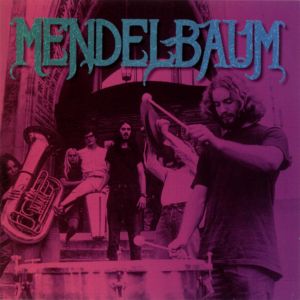
- Format: MP3

Previously unreleased double album by San Francisco band Mendelbaum featuring one studio album from 1970 and one live album (Live at the Matrix) from 1969 both recorded for a US major label but never released. Really excellent diverse Westcoast psychy rock with extra heavy psych guitar played by Chris Michie (Van Morrison) and featuring Keith Knudsen (Doobie Brothers) on drums.
Mendelbaum was different. Musically led by the lightning fast, ripping licks of Chris Michie's cherry-red 1968 Gibson SG Special (later stripped to the wood and emblazoned with a bald eagle medallion from an officer's hat) and fueled by the 'sturm und drang' of Tom La Varda?s pick-up modified Guild bass, and Keith Knudsen's Ludwig drums, they played and sang hard and fast, loud and high. While their colleagues, the Doobie Brothers, were singing about how 'Jesus Was Just Alright' for them and that we should all just 'Listen to the Music', Mendelbaum was quite a bit darker in nature. Chris Michie sang about 'Learning To Die' and similar subjects not usually shared at the love-ins and the pot-fueled discussions of how 'beautiful and groovy' everything was in the sixties. Ahead of their time, or simply coming around again in the cycle of life and of music, Mendelbaum defied commercialism and categorization in their hey-day over thirty years ago. Their thoughtful songs and brilliant playing continue even today to fly in the face of the corporate, pre-marketed 'cool' that pervades our popular music culture. Mendelbaum's music, like any true art form, functioned on many levels. First, it provided a catharsis for them as writers and musicians. Secondly, it reached out to countless fans in the sixties and seventies, acknowledging their own pain and isolation. Finally, Mendelbaum's music is returning today to echo the strains of an era long gone, yet in many ways as current as today."